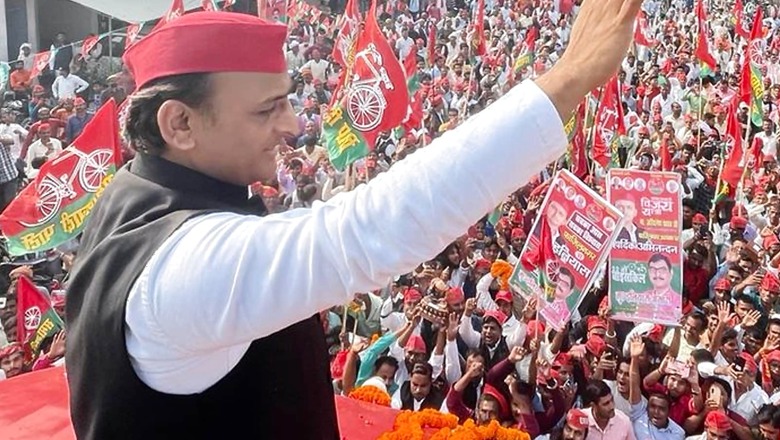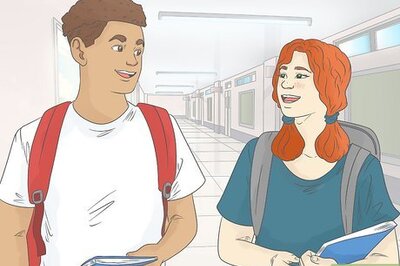
views
Even as Uttar Pradesh (UP) chief minister Yogi Adityanath’s recent statement that election 2022 is a fight between the 80% and 20% indicated that the Bharatiya Janata Party (BJP) is in no mood to give up its reliance on Hindutva, rival Samajwadi Party (SP) is set to opt for fewer Muslim candidates, especially in the communally sensitive West UP.
In Uttar Pradesh, the Muslim population is estimated to be around 20%, with a larger presence in West UP. Of the 140 assembly constituencies where Muslim voters are considered to be decisive, around 70 have a minority population of at least 30% or more and the rest have 25%-30%.
This unique demographic reality also makes West UP a more likely region for playing on communal fault lines. The divide has sharpened after the infamous Muzzafarnagar riots of 2013. The two general elections of 2014 and 2019 and the assembly polls of 2017 were a proof of how the BJP ensured a clear dominance in the region. The communal divide and the 80% versus 20% narrative played a major role in the saffron surge.
2017 polls: How the Muslim card didn’t work
The 2017 assembly election marked a watershed moment in the contemporary politics in the state. From a high of 17.1% Muslim MLAs in 2012, the strength of Muslim legislators in the assembly touched 5.9%.
Compared to 69 Muslim MLAs in 2012, 2017 polls saw only 25. This, even as mainstream political parties, barring the BJP, gave tickets to 178 Muslim candidates. The BJP did not field any Muslim candidate.
The Samajwadi Party, contesting the polls in alliance with the Congress, had given tickets to around 60 Muslim candidates. Twenty-two of the 105 tickets given by the Congress were to Muslim candidates.
The Bahujan Samaj Party (BSP) played the Muslim card by giving 99 tickets to candidates from the community.
The Muslim card proved counterproductive for both the SP and the BSP and, in turn, helpful for the BJP, as the communal polarisation defined the elections. A major reason for the failure of the Muslim card was also the split of its vote among the opposition parties.
2017 fallout: SP to downplay Muslim appeasement
With the BJP defining the rules of the political game, it has been a period of adjusting to new realities for the opposition since 2017. The past five years saw a major change in SP’s strategy. Party chief Akhilesh Yadav has refrained from aggressive posturing on the minority front.
Apart from the missing skull caps from photos and posters of its leaders, the party has also tried to distance itself from the tag of “minority appeasement”.
A senior leader of the party on condition of anonymity said: “To counter the BJP, we now ensure not to bat on its turf. Our party is committed to protecting the rights of all sections, including the minorities. Muslims know which party stands for them. There is no need for unnecessary projection”.
This strategy of not antagonising the majority community and not giving the BJP a chance of polarisation is now leading to fewer tickets for Muslims.
UP goes to polls in seven phases, starting February 10. The results will be declared on March 10.
A highly placed source in the SP said, “We plan not to fan the Hindu versus Muslim debate, especially in the West, the region that goes to polls first. The party intends to field fewer Muslim faces compared to 2012.” SP will also give around 35 seats to its ally RLD.
Amid claims of “vikas”, “good governance” and “double engine government”, Yogi Adityanath has made clear that the party will play the Hindutva card aggressively.
The region of Kairana, Shamli and Muzzafarnagar, which has been the centre of a deep communal divide over the exodus of Hindus, goes to poll on February 10 in phase 1. Ahead of polls, the UP CM had already taken up the issue of exodus and riots in his speeches during his recent visits to the region.
The battle ahead will now depend on the candidates, the lists for which are expected in the next few days. The SP feels that defeating the BJP, and not representation in ticket distribution, is the main agenda for the community.
Read all the Latest Politics News here


















Comments
0 comment